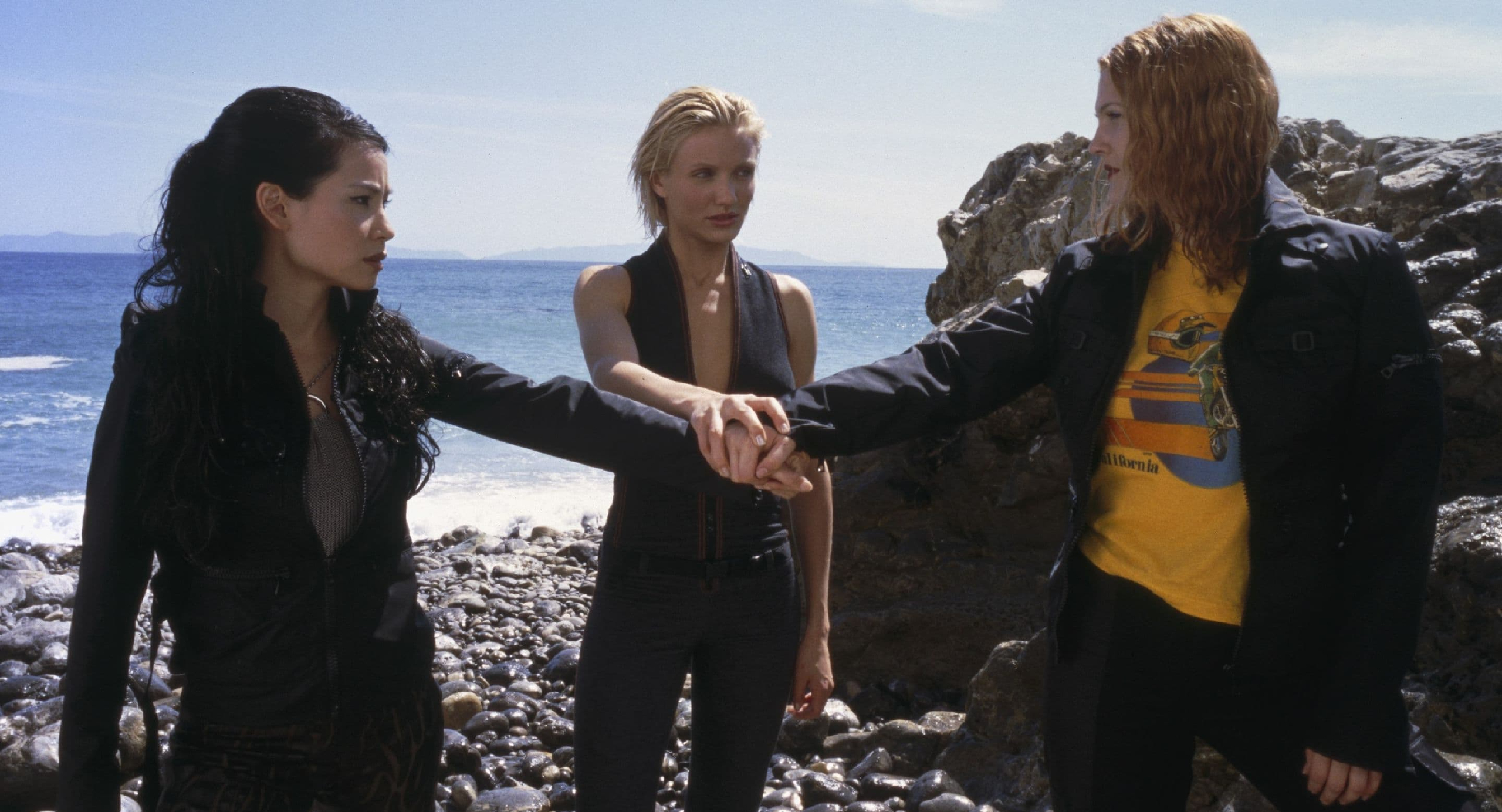Charlie’s Angels (2000) – Film Review
Published February 22, 2024

In an era of cinema where reboots, remakes, and sequels are increasingly becoming the norm rather than the exception, the 2000 release of Charlie’s Angels, directed by McG, stood as an early exemplar of the trend. Yet, despite its attempt to ride the wave of late ’90s nostalgia for ’70s and ’80s pop culture, the film serves as a vivid reminder that not all resurrections manage to capture the essence of their source material or resonate with contemporary audiences. This review endeavors to dissect the myriad ways in which Charlie’s Angels fell short of its ambitions, hamstrung by a shallow script, tonal inconsistencies, and a mistreatment of its own premise.
At the heart of Charlie’s Angels is a glaring contradiction: the film attempts to celebrate female empowerment but frequently undercuts this message through a screenplay rife with superficial character development and problematic gender dynamics. The trio of Angels – Natalie (Cameron Diaz), Dylan (Drew Barrymore), and Alex (Lucy Liu) – are undoubtedly portrayed by a talented cast who do their utmost with the material at hand. However, the script offers them scant depth beyond their physical prowess and aesthetic appeal. While the film occasionally gestures toward a more intricate backstory or emotional depth, these moments are fleeting and feel obligatory rather than genuinely insightful.
Moreover, the attempt at humor throughout the film frequently lands poorly, often resorting to slapstick or sexual innuendo that undermines the ostensibly strong, independent portrayals of the lead characters. While humor can certainly coexist with a message of empowerment, the balance here is misjudged, resulting in a tonal dissonance that pervades much of the movie.
McG’s direction brings an undeniable energy and vibrancy to Charlie’s Angels, but the film’s pacing and tonal shifts often leave the audience grappling to maintain their suspension of disbelief. The action sequences, while visually compelling, oscillate between exhilarating and cartoonish, never quite settling into a coherent style that marries the fantastical elements with the narrative stakes. As a result, even the most impeccably choreographed set pieces feel disjointed from the plot, serving more as spectacle than as integral parts of the storyline.
This inconsistency extends to the film’s aesthetic choices, which blend elements of the original series’ ’70s charm with a distinctly ’90s flair. While such a hybrid could have offered a rich visual and cultural tapestry, the execution comes across as muddled, lacking a clear vision for how these disparate elements should coalesce. The soundtrack, albeit packed with energetic hits, exacerbates this issue, often feeling more like a nostalgic playlist than a thoughtful accompaniment to the on-screen action.
One of the film’s most significant missed opportunities lies in its treatment of the antagonist, Eric Knox (Sam Rockwell), and other secondary characters. Knox, who could have offered a compelling counterpoint to the Angels, is relegated to a rather one-dimensional role that squanders Rockwell’s considerable talents. His motivations and backstory, like those of the protagonists, are given minimal exploration, rendering his eventual heel turn both predictable and underwhelming.
Similarly, other characters that could have added depth and complexity to the narrative are sidelined. The relationship between the Angels and their elusive boss, Charlie, lacks the intriguing dynamic present in the original series. Bill Murray‘s Bosley is given a somewhat meatier role but is often deployed for comic relief that feels out of step with the broader thematic aims of the film.
Despite its flaws, Charlie’s Angels is not wholly devoid of merit. There are fleeting moments where the film genuinely seems to celebrate the strength, intelligence, and agency of its lead characters. Certain action sequences manage to convey a sense of empowerment, showcasing the Angels’ skills in a manner that momentarily transcends the film’s more questionable elements. Moreover, the chemistry among Diaz, Barrymore, and Liu is palpable, offering glimpses of a more cohesive and engaging narrative that could have been.
Yet, these moments are too infrequent and too overshadowed by the film’s overarching issues to salvage the endeavor. The potential for a truly empowering and entertaining adaptation of Charlie’s Angels is evident, but the execution here falls markedly short.
Charlie’s Angels serves as a cautionary tale in the world of film remakes and reboots. Despite a talented cast and moments of visual flair, the film is ultimately undone by a lack of depth, inconsistent tone, and a failure to fully realize its feminist aspirations.
